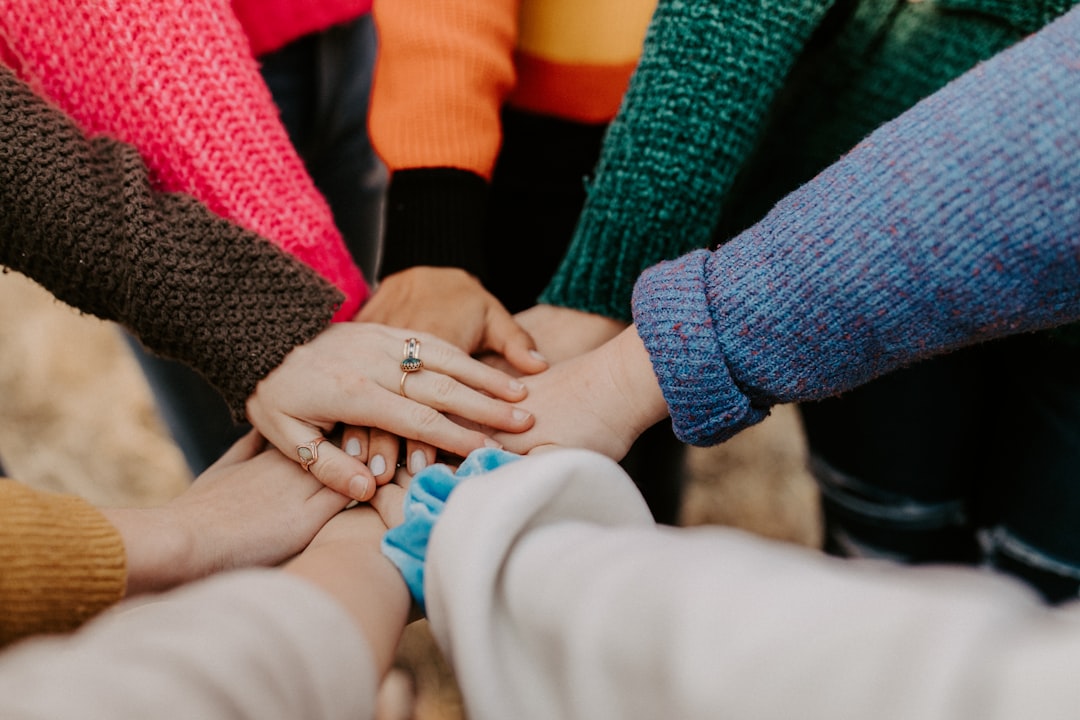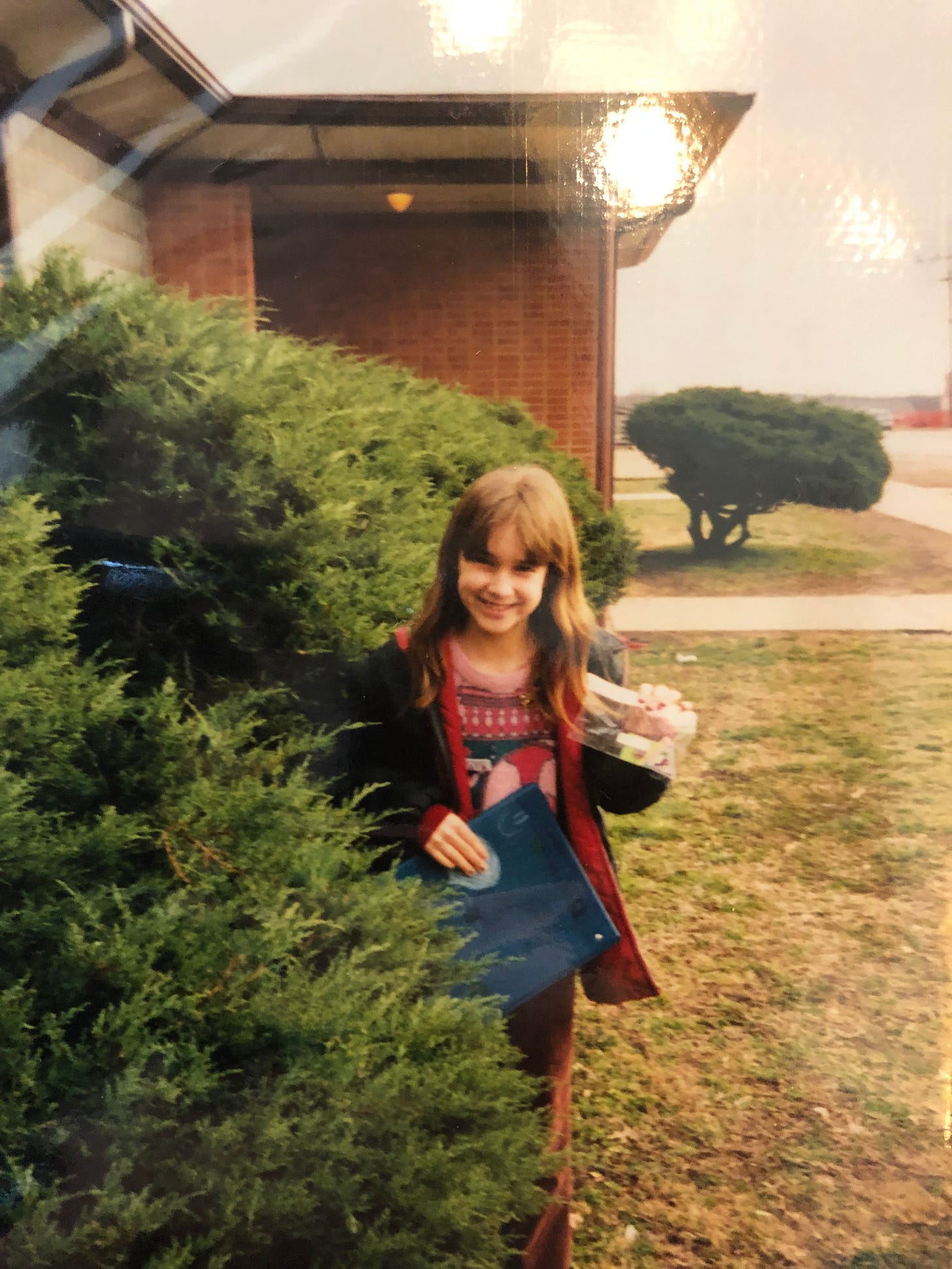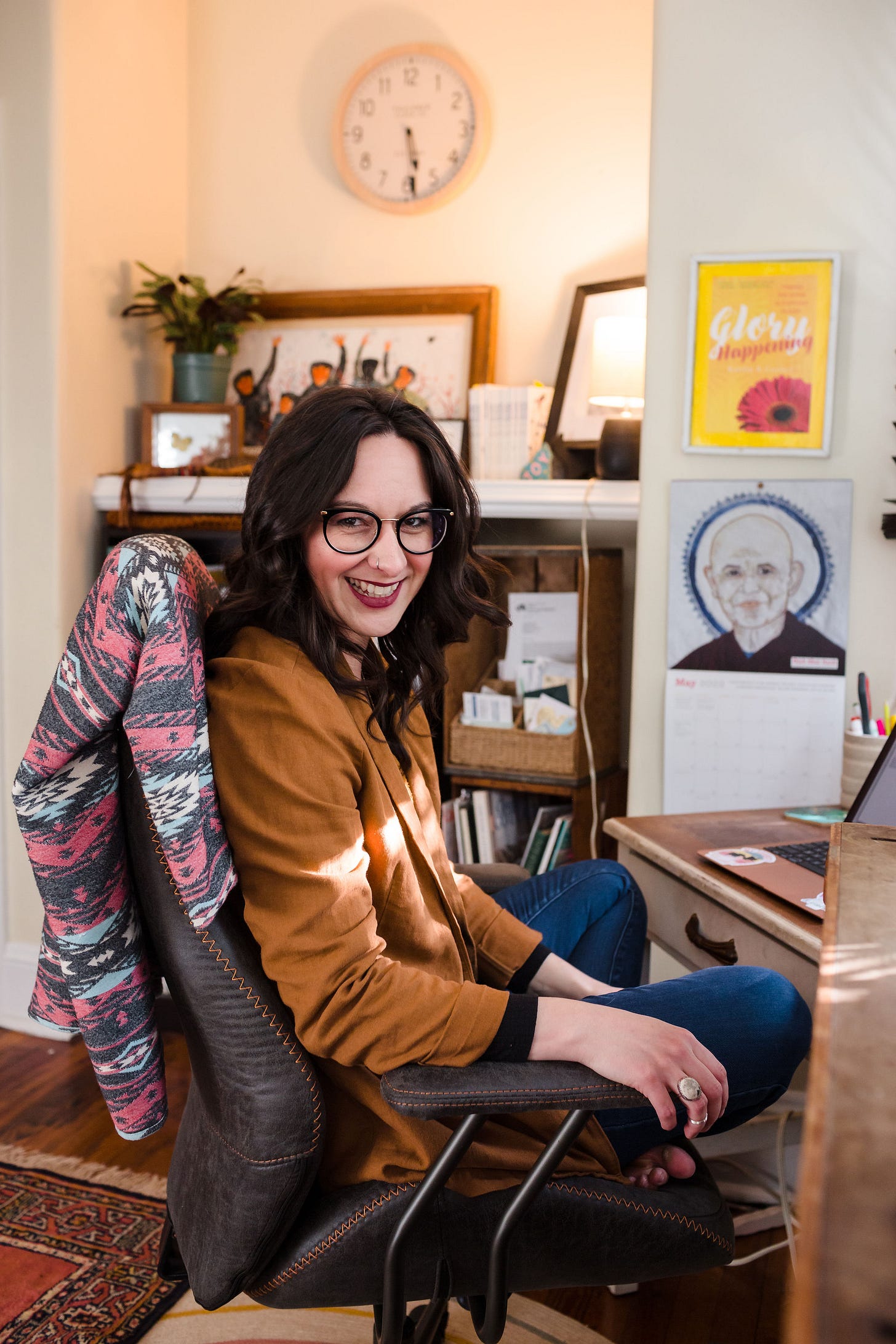Hello friends,
First of all, thanks to all of you who have been reading this series and have reached out to let me know how much it is helping you come to terms with the powers and pressures of being an author. I want my words to support others, and I’m so glad we are in this together.
If you’re new here, thanks for showing up! This is a really special place where we explore what it menas to be human through our own stories, through poetry and the power of words, and through thoughts on embodiment and healing.
Today, as part of the Is Publishing Sustainable? series, we’re looking at Part Three, and asking:
are loyal readers really out there? and what is the relationship between authors and readers?
Before we move on, make sure you’ve read the other two parts of the series so you can get a full picture of what we are talking about here:
📖One part publisher responsibility (are they doing their part?)
🔥One part author hustling (and managing burnout)

The relationship between a reader and an author is sacred, I truly believe that.
There’s this debate—as authors, do we write for ourselves or others? Some say to never write for other people or you’ll lose yourself, but if we only write for ourselves, we’ll lose that relationship.
So, it should come as no surprise to you that I fall in the liminal space where it’s a little bit of both.
I am a writer because words have always, always been my safe place, my haven, my home. Words have held me close when people couldn’t, and words have allowed me to move through so many different seasons of my life.
And I’m a reader because some of my best growth comes through the challenges of asking questions, of coming face to face with the stories and expriences and thoughts of others who help me think bigger and wider and deeper.
I need books and words and wisdom-wells of others if I want to be a better human.
So, yes, this relationship is incredibly sacred, and I hope that you feel that, and that we recognize that many of us writers are also readers, in a reciprocal relationship.
So, here are a few things I notice about the reader-writer relationship that I’ll touch on today:
Social media followers are not loyal and have short attention span for the most part (there’s a difference between a reader and a follower)
There are varying levels of commitment (the world changes our relationship to one another)
Read with intention (it’s never too late to become a different kind of reader)
First, social media followers are not loyal to authors and have a short attention span for the most part (there’s a difference between a reader and a follower).
In a 2018 piece from a website called Book Launch, Tim Grahl shared some interesting insights into social media, a lot of which I’m still seeing today (and it’s actually gotten worse). Here’s what he said back then:
I worked with a client that had over 160,000 Twitter followers. We tracked the sales in promoting his book on the platform and it resulted in less than 400 sales.
An author friend had someone with well over 1 million Twitter followers promote his book and it resulted in no noticeable bump in book sales.
In multiple tests across many social media accounts, it’s a normal thing to get well under 1% – more like 0.25% – of your followers or fans to take action on a given update. This is just clicking on a link, much less converting to a sale.
And in a NY Times piece, this was shared:
An author’s following has become a standard part of the equation when publishers are deciding whether to acquire a book. Followings can affect who gets a book deal and how big an advance that author is paid, especially when it comes to nonfiction. But despite their importance, they are increasingly seen as unpredictable gauges of how well a book is actually going to sell.
So, we have to remember that there’s a difference between a reader and a follower, and I think each of us needs to decide what we are. When you see an author sharing about their books or work on social media, take a moment to ask what you can do to help them out, especially for authors from marginalized communities and backgrounds.
Ask: can I share about this? Can I tell a few friends? Can I support in another way?
You can’t share every single thing you see on social media, and we know that books cost money—be wise about your choices, and be loyal in your sharing, keeping in mind what it means to become a true reader and not just another follower.

Next, once you decide to not just be a follower but a loyal reader, think through this: There are varying levels of commitment in this relationship, so where can you commit? (the world changes our relationship to one another).
You are here already, reading The Liminality Journal, part of this special community. Truly, thank you so much. It means the world to me to know that there are folks out there who will be excited when I share about a new book or project, who will join me in celebrating Indigenous wisdom and stories across the world.
The world is changing, changing, all the time. This space, social media, publishing itself—so it makes sense that as readers we must evaluate who we are in this relationship, and what commitments we can make along the way.
Maybe you commit to leading a book club of Living Resistance.
Maybe you commit to becoming a paid subscriber to a few newsletters.
Maybe you commit to reviewing the books of your favorite 10 authors (it would take 20 minutes or less!).
Maybe you commit to posting about some of your favorite author’s books twice a month and highlight their work.
Whatever it is, your commitment to this relationship matters, and reminds us as authors that we matter.

Lastly, read with intention.
I love those stories of authors who write books and they don’t become bestsellers until a few years later. Like Robin Wall Kimmerer’s famed Braiding Sweetgrass— did you know that her book was released years before it hit the NYT list and became an international bestseller?
I think it’s because of the readers, when words and stories rise back to the surface and the audience knows that those words matter. So, as readers, let’s read with intention, dig books off the shelves we haven’t read in a while, share from their wisdom.
And recognize that it’s never too late to become a different kind of reader than you’ve been.
I wasn’t an avid reader growing up, and systems of reading in middle school (having to take tests and only stick to your grade level) sort of ruined the joy of it for me ( I am still waiting to finish House of Dies Drear that I started in 7th grade, and I’ll let you know when I do!).
But when I became a reader, I began to understand what a gift it was. And now, I understand that even more! As I age, I think I’ll understand it even more, and I’ll become a more supportive reader bit by bit, working to elevate the books that have changed me over the years and seasons of my life.
So, dear readers, I have a few asks, personal and collective ones:
Find ways to support a few authors this month. Buy their books, review the books you’ve read on Amazon, join a Substack as a paid subscriber, share a few of the books you love on social media and tag the author if you can. Preorder my upcoming children’s book, Summer’s Magic and support Indigenous authors.
Join me next Thursday for a very special event to celebrate the one year anniversary of my book Living Resistance! This is the first of four sessions, each focused on one of the four realms of resistance. This first session is on the personal realm, and we will spend time journaling, sharing and reflecting. There are only 25 spots available and tickets are selling fast! I’d love to see you there. Register here.
Think of an author you know who has changed you and send them a note to let them know. The world is heavy right now, and we could all use a little support. Reach out through their contact page on a website, in a newsletter comment, or in a post on social media. It means so much to know we aren’t alone and that our words help others through this journey of life.





Kaitlin, I am a new subscriber to your Substack, and I just want to tell you how grateful I was to read this today. Like you, writing was a stable and steady source of grounding for me as a child. Reading, too, connects me to other worlds and imaginations and ideas and cultures that I could never, in this lifetime, achieve on my own.
And relationships matter, perhaps now more than ever. In this isolating society, we need the reminder you offer to us today that authentic connections are the basis of writer-reader relationships. They strengthen, encourage, and uplift us. They're the reason we do what we do. It's a powerful testament to how books can change lives and hearts.
Thank you thank you for this.